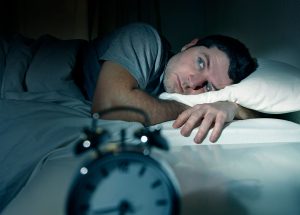 New findings published in Scientific Reports show that poor aspects of sleep can be a risk factor for heart disease. Individually, they affect heart health, but when combined, poor sleep aspects can increase the risk of heart disease by as much as 141 percent.
New findings published in Scientific Reports show that poor aspects of sleep can be a risk factor for heart disease. Individually, they affect heart health, but when combined, poor sleep aspects can increase the risk of heart disease by as much as 141 percent.
For the study, researchers from the University of South Florida reviewed sleep data from 6,820 U.S. adults with an average age of 53. Each participant self-reported their sleep characteristics and heart disease history. Among these participants, 633 also wore an actigraphy device around their wrist that captured sleep activity.
Advertisement
The study was focused on multiple aspects of sleep health such as satisfaction, regularity, alertness during waking hours, and overall sleep quality. Participants were also asked about their health, including if their physician confirmed a heart condition such as arrhythmia, heart murmur, or enlarged heart. High blood pressure was not considered a diagnosis since it is a risk factor for heart disease and not a diagnosis.
It was found that each additional increase in sleep health problems was associated with a 54 percent increase in the risk of heart disease. These findings held even after being controlled for family history of heart disease and socioeconomic factors such as sex, race, smoking, depression, and physical activity.
Researchers say that while sleep health is essential for all ages, this study was focused on middle-aged adults as it spans for a longer period and consists of more stressful life experiences due to work and family roles. This is also typically when the precursors for heart disease and age-related sleep issues begin to appear.
Sleep and Heart Health
As this study demonstrates, lack of sleep can lead to much more than mere tiredness and diminished performance during the day. Getting proper sleep can help support the ability to maintain healthy body weight, blood sugar levels, cardiovascular health, and mood.
Sleep Sure Plus is designed to help promote restlessness and optimal sleep. Its unique formula includes melatonin, a hormone essential for regulating the circadian rhythm, which is a natural, internal process that regulates the sleep-wake cycle.
Along with getting proper sleep, it is essential to focus on heart health as you age. So, Heart Rescue was designed to help support and promote cardiovascular health, using a variety of ingredients, including omega-3 fatty acids, CoQ10, magnesium, and hawthorn extract. These ingredients can help to reduce the risk for heart disease, strengthen the heart muscle, and support circulation.
